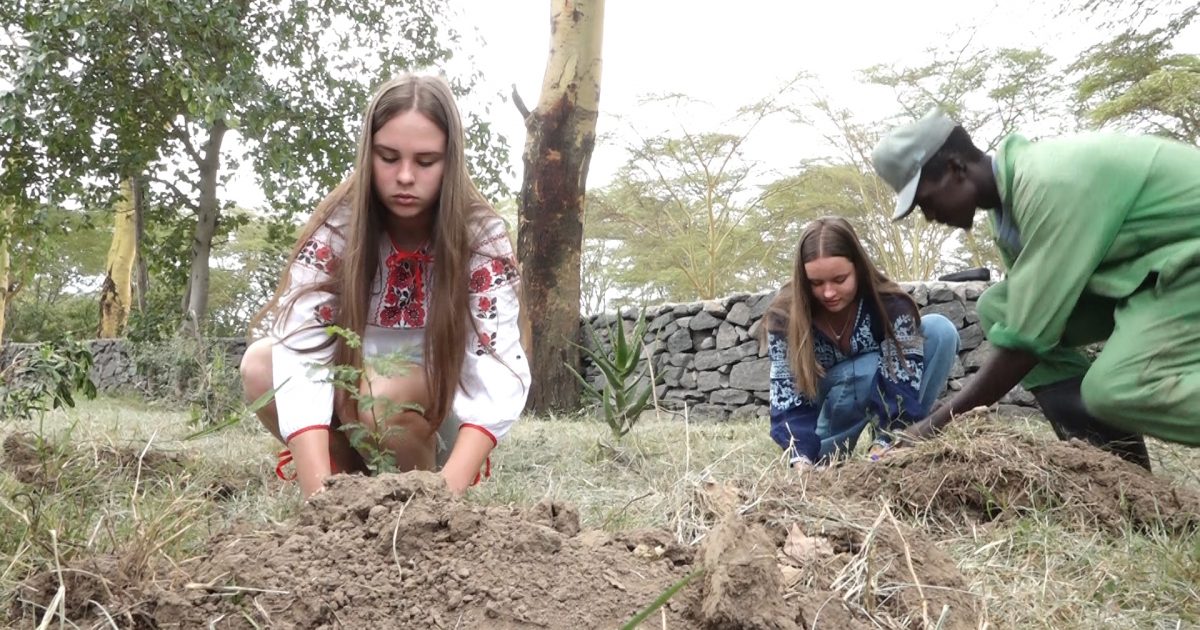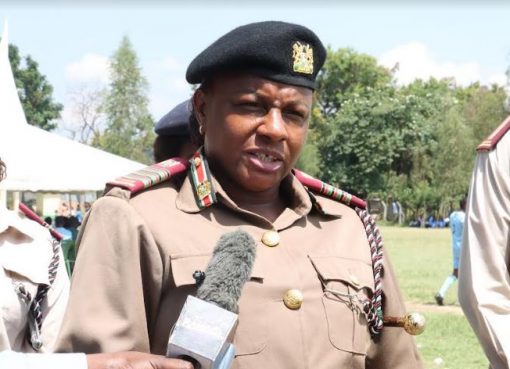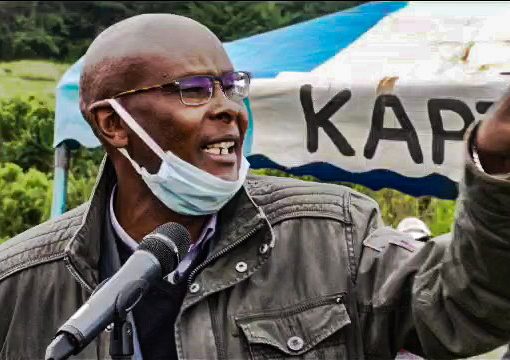Ukraine is keen to deepen its ties with Kenya towards tackling the common environmental challenges experienced by the two countries including the impact of war on climate change.
Ukrainian Honorary Consul Oleksii Sierkov indicated that climate change is a complex issue that no single country could solve independently adding a collaborative approach involving partnerships across national governments, the private sector, and the international community is required for rapid transformation.
At the same time, the envoy has disclosed that his country is committed to improving its diplomatic ties with Kenya and that a Ukrainian delegation will be visiting the country soon with an agenda of improving collaboration between the two states in various spheres.
The Ukrainian delegation with representatives from civil, academic, cultural, and political communities would be led by Lesia Vasylenko, a Member of Parliament to boost the efforts made by a previous delegation from the Nation trying to rebuild itself following a protracted war with her neighbor Russia.
Speaking at the Lake Nakuru National Park and Bird Sanctuary after a delegation of 45 students from various institutions within Odesa Lyceum City in Ukraine planted more than 200 indigenous tree seedlings in the park, the envoy further noted that the number of tourists from his country visiting had been steadily increasing in the past four years.
The students aged 12 to 15 who jetted into the country a fortnight ago have also visited Lake Naivasha, Tsavo East National Park, and several historical and cultural sites in the Coastal region.
Sierkov who was flanked by Lake Nakuru Lodge Captain Mr. Joseph Muya, indicated that Kenya and Ukraine shared the same values of democracy and belief in the right to self-determination.
“Being hustler nations with a promising future ahead of them requires hard work and determination by the citizens of the two friendly nations,” he said.
On environmental challenges, the envoy pointed out that both Kenya and Ukraine were grappling with desertification, loss of water and forest resources, biodiversity loss, and increased greenhouse gas emissions.
The two nations, he added, have severally experienced several climate change-related impacts, such as severe droughts, major floods, and devastating fires, which have resulted in loss of life, livelihoods, and a drop in Gross Domestic Product.
“We understand the threats and challenges for the African continent. We are ready to work together in combating the consequences of climate change such as the food crisis. Kenya and Ukraine have a high potential for developing cooperation in many areas. After all, combating climate change is the responsibility of many ministries and other relevant agencies.”
According to Sierkov, the environment is also about security: the security of growing quality food, drinking clean water, and breathing clean air, among others.
The envoy regretted that the war between Ukraine and Russia has cut off vital food supplies to many parts of the world, particularly Africa leading to food prices skyrocketing and causing people to starve.
He expressed regret that the war has killed, injured, and traumatized Ukrainian children and had a devastating impact on their access to education.
He added that all the 45 pupils had felt the adverse effects of the conflict as millions of people, mostly women, and children, had fled Ukraine to neighbouring countries – mainly Poland, but also Hungary, Moldova, Romania, Czech, and Slovakia.
Sierkov urged leaders not to drive their countries into armed conflicts adding that they (Political leaders) should never forget that the positions they hold, and enjoy are transitional and their terms will end and they shall be held to account sooner or later.
“I urge all leaders, businessmen, and politicians before sliding their nations into armed conflict to reflect on the consequences of their selfish interests on the general population. For these young ones visiting Kenya life must go even if there is war,” stated the envoy.
Muya who for 25 years has been championing for conservation of the Lake Nakuru ecosystem through the Lake Nakuru Environmental lobby observed that with the expectation of escalating climate crises in terms of frequency and intensity, urgent action is required to mitigate these challenges.
The Lake Nakuru Lodge captain, who donated the trees, said the hotel chain has a programme dubbed Adopt a Tree, for their visitors and has extended it to the Lake’s catchment to meet the President’s call to plant 15 billion trees in 10 years.
He added that all key socio-economic sectors are currently being affected by climate change-related extreme weather events such as heat waves, fires, and floods, and many communities are vulnerable to climate change expected in the coming decades.
“Agriculture, infrastructure, and human health are particularly vulnerable to climate change worldwide,” the environmentalist added.
He affirmed that the conservation of Lake Nakuru and other natural ecosystems is an essential part of safeguarding Kenya’s diverse wildlife and preserving its natural heritage for future generations.
Muya however said it is refreshing to note that African leaders are focusing their development strategies on sustainable solutions at both the national and continental levels.
“The Africa Environment Action Plan, the Africa Clean Energy Corridor, and the Africa Renewable Energy Initiative all indicate the continent’s strategic commitment to addressing the climate crisis. The actions proposed in these initiatives were restated in the Nairobi Declaration, which summed up the outcomes of the African Climate Summit 23 (ACS 23),” explained the environmentalist.
The Declaration comprises 23 commitments, primarily addressing policy areas related to investment attraction, economic development, enhanced continental cooperation, increased renewable energy financing, support for small-scale farmers, and the expedited implementation of the African Union Climate Change and Resilient Development Strategy and Action Plan (2022-2032).
Valery Topoleva who headed the students’ delegation, a first-time visitor to Africa and Kenya who participated in the tree planting, said it was a pleasant surprise for her to be able to leave a memory of each of her team members behind in Kenya by planting a tree.
“We are so grateful to participate in this exercise, and are so impressed with the green initiative here in Kenya. It’s a lesson to all of us to take back to our country to be more diligent with what we do to the ecology,” said Topoleva.
She indicated that the group’s two-week visit was an amazing experience they will treasure for the rest of their life.
“Kenya is a very warm country, they are very welcoming people, very hospitable. They have many tourism facilities. We have visited breathtaking, historical, cultural, and tourist sites and seen rare species of wildlife; the Elephant, Rhino, Buffalo, and the Leopard among others,” stated Topoleva.
By Jane Ngugi




